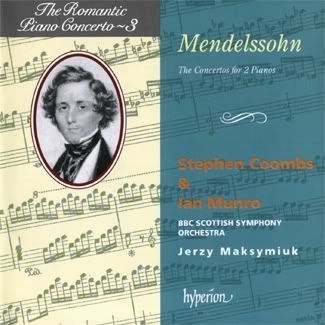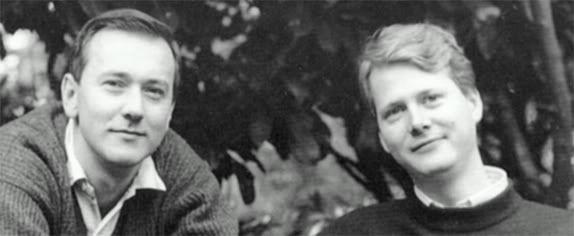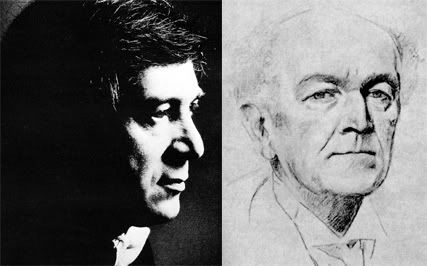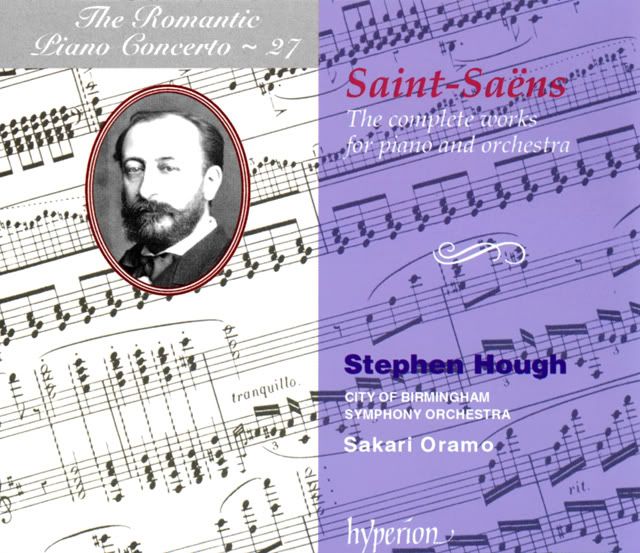A big thanks to the original uploader for His kind permission to upload this torrent!!!
Большое спасибо первоначального аплоадера за его любезное разрешение
залить этот торент и использовать его материалы!!!
Introducing
The Hyperion Romantic Piano Concerto series
Volume 1: Moszkowski & Paderewski Piano Concertos
Of the myriad Piano Concertos composed in the second half of the 19th century all but a handful are forgotten. The survivors are played with a regularity that borders on the monotonous – the ubiquitous Tchaikovsky No. 1, the Grieg, Saint-Saлns’s second in G minor, the two by Brahms and, really, that is just about all there is on offer. Pianists, promoters and record companies play it safe and opt for the familiar. Even a masterpiece can become an unwelcome guest, especially when subjected to an unremarkable outing by yet another indifferent player, as happens so frequently today. How refreshing, then, to have the dust brushed off ... forgotten specimens of late 19th century piano concertos and rendered clean and polished for inspection again. Refreshing and rewarding, for they are exactly the sort of pieces that make one wonder why we are forced to live off such a limited concerto diet. How is it that such appealing, well-crafted, imaginative works with their high spirits and luscious tunes could have vanished from the repertoire? .. What is it about them that has failed to put them in the classical pop charts? Listening to them afresh it is a teasing question to answer; the longer one ponders the matter, the fewer become the justifiable, verifiable reasons why today’s audiences so rarely have the opportunity to enjoy works such as these delightful crowd-pleasers. It is time for those who promote and play piano music to be more adventurous and imaginative in their programming."
© 1991 Jeremy Nicholas, excerpt from the booklet notes

Moritz Moszkowski
(Breslau, August 23, 1854 - Paris, March 4, 1925)
Piano Concerto in E major, op. 59 (1897-98)
I. Moderato [13:07] - II. Andante [8:17] - III. Scherzo : Vivace [6:31] - IV. Allegro deciso [9:16]
Ignacy Jan Paderewski
(Kurylowka, Podolia, November 6, 1860 - New York, June 29, 1941)
Piano Concerto in A major, op. 12 (1888-89)
I. Allegro [16:29] - II. Romanza : Andante [10:08] - III. Allegro molto vivace [8:32]
Piers Lane, piano
BBC Scottish Symphony Orchestra
Jerzy Maksymiuk
Recorded in City Hall, Glasgow on 3, 4 June 1991
Recording engineer, Tony Faulkner. Recording producer, Martin Compton
© 1991 Hyperion Records Ltd. CDA66452
‘Performances of exceptional poetry and virtuosity and the recording is first class. Strongly recommended’ (The Good CD Guide) ... ‘Played with this degree of flair and passion it’s all one can do to keep one's hands off the repeat button’ (Piano International) ... ‘Outstandingly performed and recorded ... An absolute winner. I can’t wait for the new items in the series’ (CDReview) ...
‘Unassailable technical qualifications, state of the art sound and a first-rate orchestra’ (Fanfare, USA)
It would be hard to imagine a more auspicious debut for Hyperion’s series "The Romantic Piano Concerto" than Piers Lane’s poetic and scintillating account of both the Moszkowski and Paderewski piano concertos. Written at a time when whirlwind virtuosos were two a penny, both works, particularly the Moszkowski, resolve their fearsome acrobatics in music of exceptional grace and fluency; qualities revered before they were superseded by altogether more strenuous and sombre virtues. Such music was once extensively served in a previous romantic revival by pianists, including Raymond Lewenthal and Michael Ponti, whose brittle and often savage brilliance was high on energy but short on charm. And clearly, such music requires very special handling and commitment if its oddly endearing mix of naivety and sophistication, cunning and obviousness, is not to degenerate into emptiness or triviality. – From Lane the Moszkowski, where ideas are so lavishly protracted, seems not a note too long. His virtuosity is altogether more pliant and musical than Michael Ponti’s on his long deleted Vox recording and more elegant and affectionate than David Bar-Illan on his Audiofon CD. His first entry at once provides a case in point, being both subtle and dramatic, and invitations to play grazioso (3’49"') or to treat some Chopinesque tracery con eleganza are met with exceptional finesse and poetic vitality. In the Scherzo Moszkowski presents sunny Italianate clichйs without even a trace of irony (a far cry from Busoni’s dark and menacing way with such conventions in his massive and daunting Piano Concerto) and here Lane is vivace indeed, whirling his way through every intricacy with a luminous and immaculate brio. Only his opening to the finale –a tune to set even the most jaded heads nodding along and tired feet tapping – is less than ideally poised, is insufficiently con forza or deciso as marked. But in the subsequent leggiero second subject his fine-spun tone and rippling dexterity are enchanting.
The same virtues colour Lane’s performance of the Paderewski Concerto, though here his occasional reticence is emphasized by a balance that allows too little decorative detail to be savoured; a piano sound unduly recessed, most notably in the first movement cadenza. Yet once again the playing is as masterly as it is self-effacing and in the central Romanza, music to soothe the savage breast and one of Paderewski’s happiest inspirations, his warmth and flexibility are beautifully apt. However, I’m bound to say that when compared to Earl Wild’s legendary RCA account of both the Polish Fantasy and the Concerto (unforgivably unavailable and awaiting transfer to CD) even Lane, for all his skill, can hardly compete with such larger-than-life brilliance, particularly in the Concerto’s finale, where Wild’s glitter (greatly admired by Horowitz among others) is of the sort dreamed of rather than achieved by his younger colleague... None the less I have few reservations in recommending the Hyperion disc. From Lane you remember the poetry even more than the fireworks, a very special accomplishment. He is stylishly and accurately partnered by Jerzy Maksymiuk, so this is a distinguished start to what promises to be a delectable series.
Gramophone.co.uk

Three languages-, 20 pages-booklet in .pdf format included.
Complete details of the Romantic Piano Concerto project can be found
at the Hyperion Records (http://www.hyperion-records.co.uk/ website (Indexes – Collections)
| QUOTE: |
| Techne / The Romantic Piano Concerto, vol. 1 Extraction: Exact Audio Copy 0.95 beta 3 Used drive: PLEXTOR CD-R PREMIUM, Offset +30 Read mode: Secure with NO C2, accurate stream, disable cache Manually integrated natively-tagged .flac files through EAC proper additional commandline: [-8 -V -T "artist=%a" -T "title=%t" -T "album=%g" -T "date=%y" -T "tracknumber=%n" -T "genre=%m" -T "comment=Exact Audio Copy 0.95 b3 Secure Mode / FLAC q8 v. 1.1.2" %s] Full artwork included in .png and .pdf lossless format, scans at 600 dpi resized to 300.Text pages not descreened. |
























































































